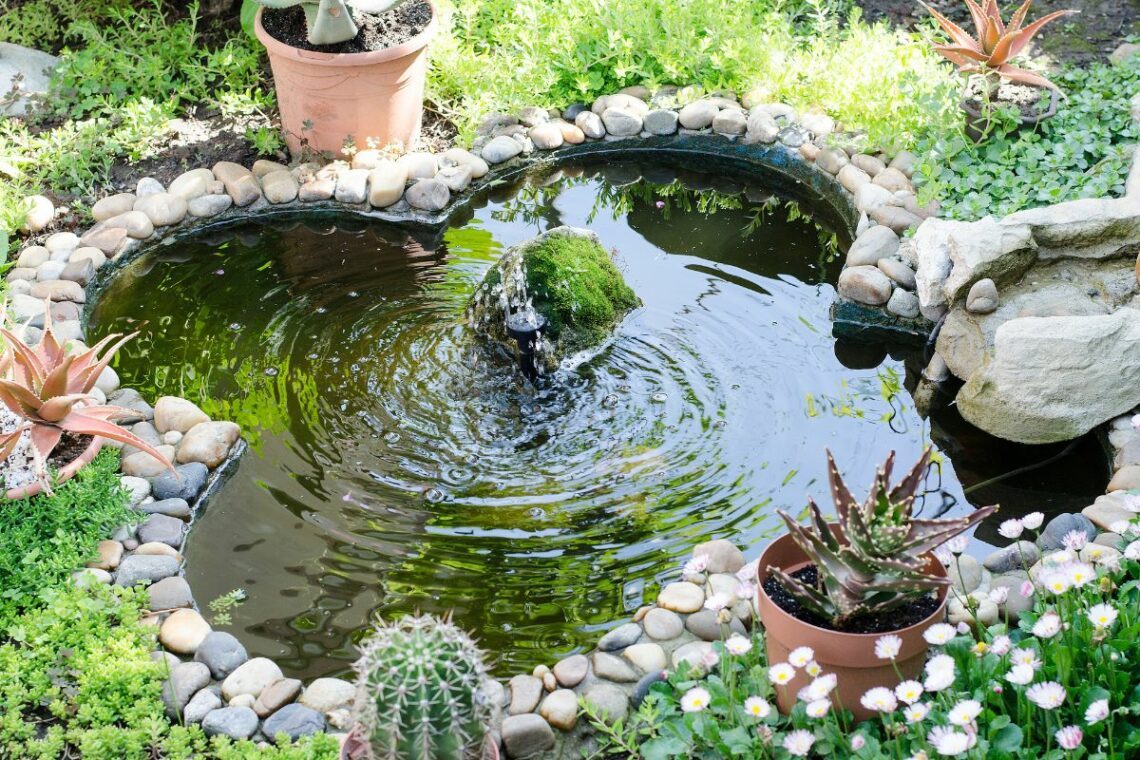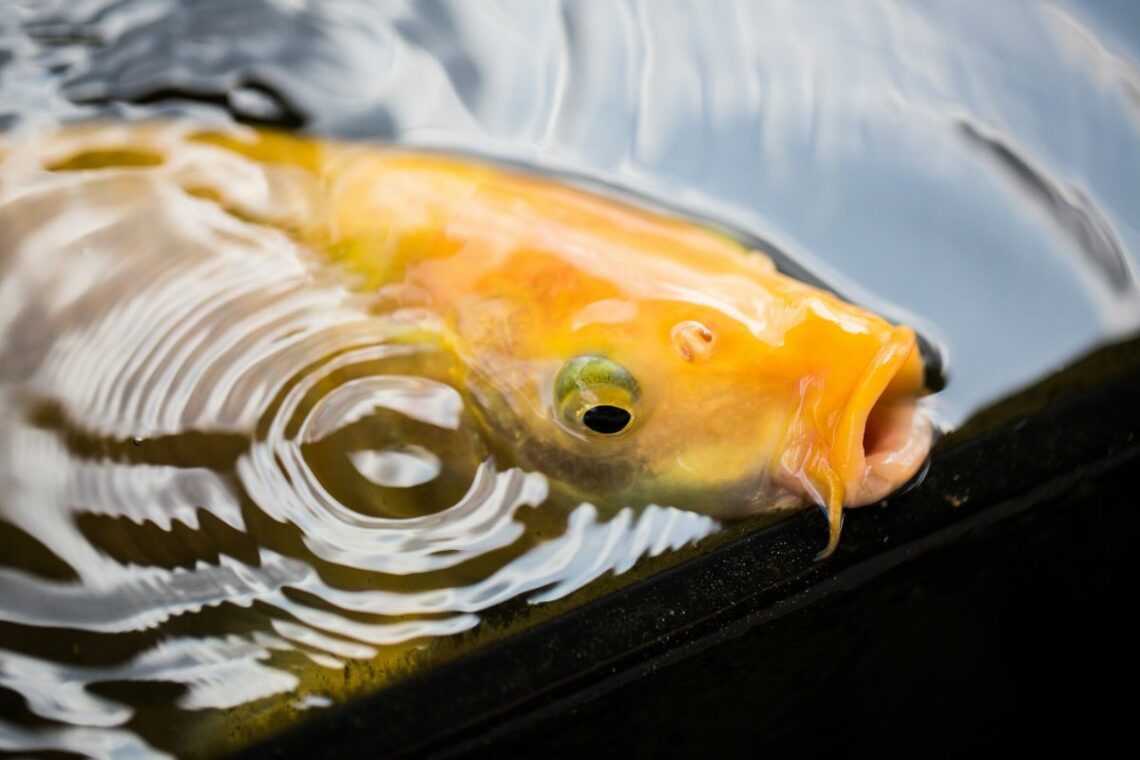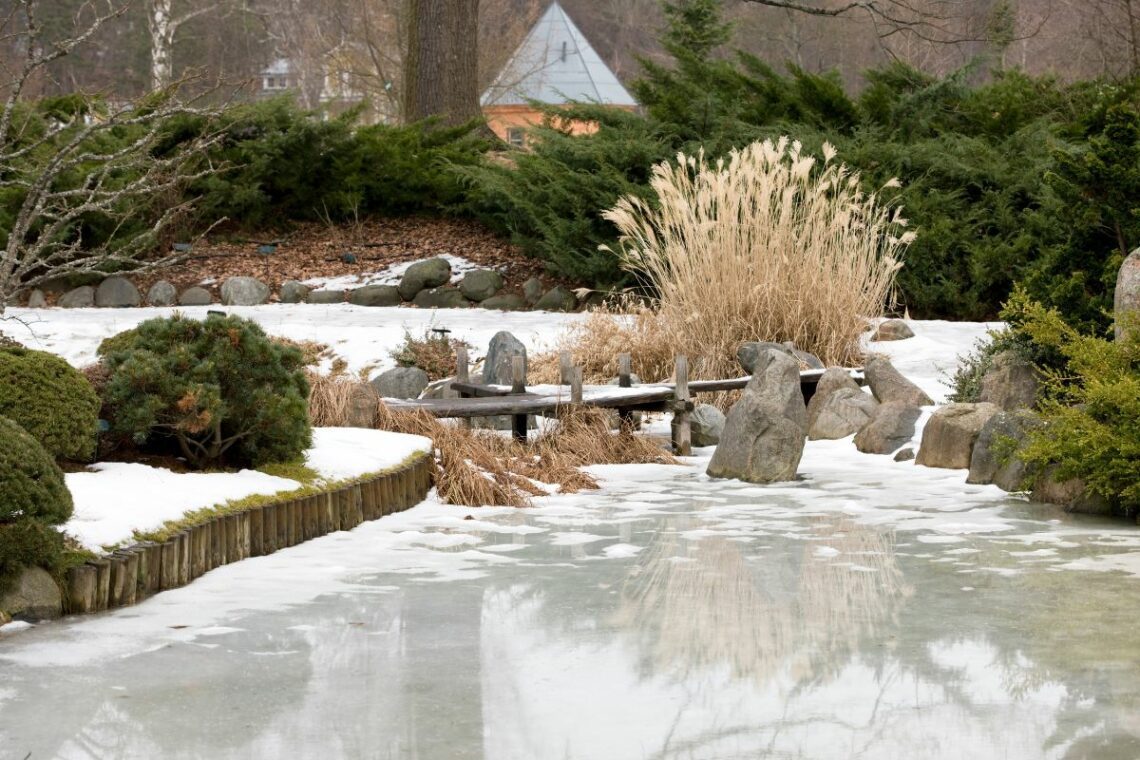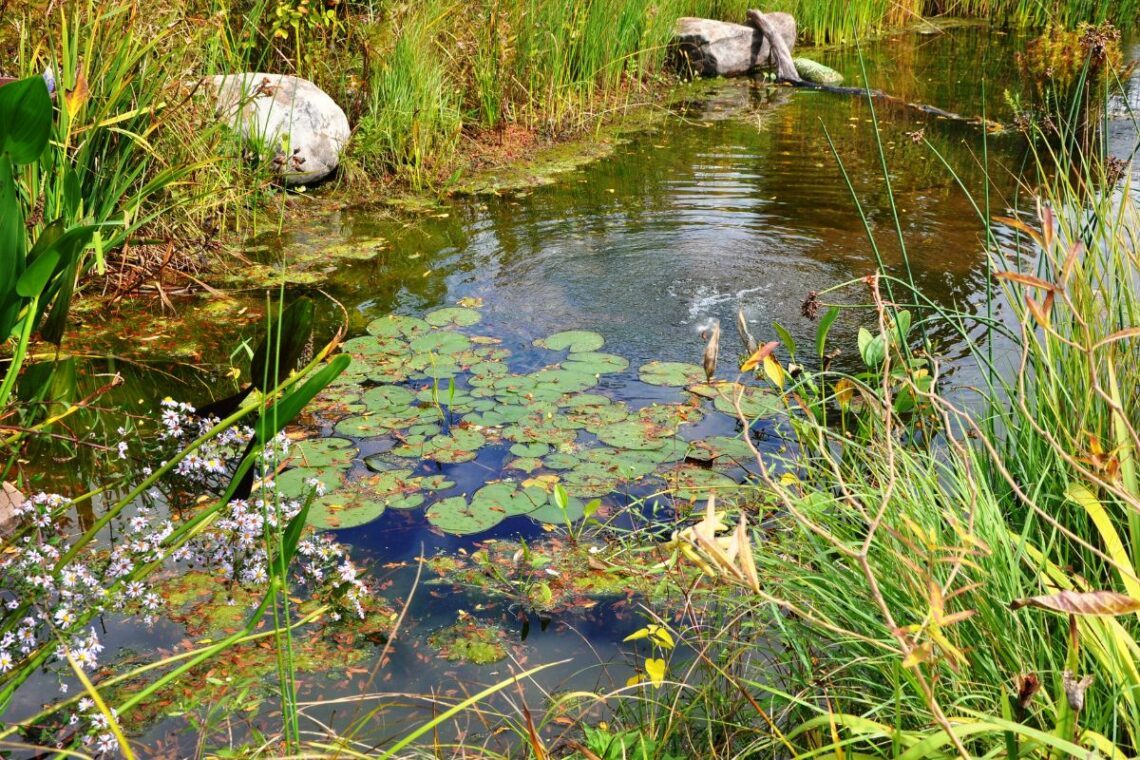It is getting to that time of the year, where it’s beginning to get much colder.
The crispy leaves beneath your feet, snowfall and ice, and that breath of fresh air when you first take a step outside. It’s a bit like marmite.
You either love it, or you hate it.
We may enjoy autumn and winter, but I can tell you now, fish don’t.
One common occurrence when the temperature hits zero is your garden pond may freeze over.
You may panic – but don’t.
4 Essential Winter Pond Care Tips
These tips will help you keep your fish safe and well.
1. Check Underwater Pumps

To ensure the well-being of your fish throughout the winter, it’s crucial to verify that all underwater pumps are positioned well below the frozen surface of your pond. This preventative measure is vital not only for maintaining the functionality of the pump but also for guaranteeing a continuous oxygen supply to your fish.
Proper placement helps prevent the pumps from freezing and ensures that they can continue to circulate warmer water from deeper layers, which is essential for the survival of aquatic life during cold spells. By maintaining a steady flow of oxygenated water, you’ll create a more stable environment for your fish to thrive in, even when the surface is frozen.
2. Safely Create a Breathing Hole

To allow for proper gas exchange and prevent the buildup of toxic compounds, it’s crucial to keep a hole open in the ice. However, breaking the ice can stress your fish, so opt for a gentler approach:
- Carefully pour warm water onto the ice to melt a small hole.
- Avoid using boiling water, as the sudden temperature change can shock your fish.
- Check the hole frequently to ensure it hasn’t refrozen, and repeat the process if necessary.
By maintaining an open area in the ice, you’ll ensure that your fish have access to the oxygen they need to survive and that harmful gases can escape, promoting a healthier underwater environment.
3. Remove Snow from the Pond’s Top Ice Surface

If snow accumulates on the frozen surface of your pond, take the time to clear it away. This will allow essential light to penetrate the water, enabling aquatic plants to continue producing oxygen and maintaining a healthy ecosystem for your fish.
Photosynthesis is a vital process that helps keep your pond’s oxygen levels stable, even during the winter months. By removing the snow cover, you’ll ensure that your pond’s aquatic plants can continue to play their crucial role in maintaining water quality and supporting the overall health of your pond’s ecosystem.
4. Keep Equipment Running (i.e. Pumps And Filters)

Your pond’s filter is home to beneficial bacteria that break down toxic compounds, maintaining optimal water quality and promoting the health of your fish. While these bacteria may become dormant in colder temperatures, a constant supply of oxygenated water from the pump will keep them alive until spring arrives. Avoid shutting down your pump and filter completely during the winter months, as this will disrupt the crucial filtration process.
By keeping your pump running, you’ll also prevent the water in the pipes from freezing. Your equipment will be safe from potential ice expansion damage thanks to the constant flow of water. This will not only help keep your fish healthy throughout the winter but also ensure that your pond is ready to thrive come spring.
So, make sure to leave your pump running!
Follow these rules this winter, and you’ll have healthy, happy fish!
Wrap Up & Key Takeaways
By following these essential winter pond care tips, you can ensure that your fish remain healthy and happy throughout the coldest months. Regular maintenance and attention to detail are key to maintaining a thriving ecosystem in your pond, even when the surface is frozen. Remember, a well-cared-for pond provides joy and tranquility all year round, and the effort you put in during the winter will pay off in the spring and summer months.
We’d love to hear from you.
Are you an experienced pond enthusiast with your own winter care tips to share? We’d love to hear from you! Leave a comment below and share your knowledge with our community.
Don’t forget to share this article with your fellow pond owners to help them keep their fish safe and healthy this winter.
And if you’re looking for more in-depth guidance on pond maintenance and fish care, be sure to download our comprehensive pond care guide – it’s packed with expert advice and practical tips to help you create and maintain the pond of your dreams!
Not ready for a consultation?
Grab your free swim pond inspiration guide now.
